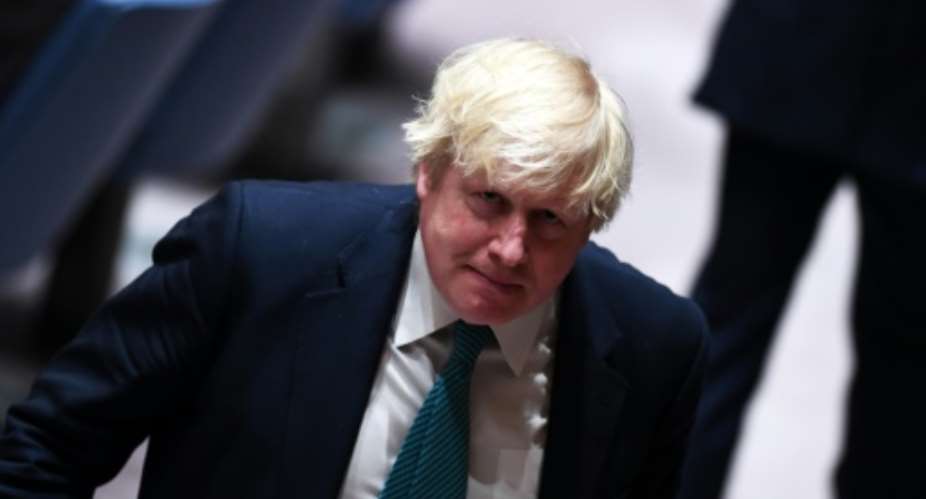Tripoli (AFP) - British Foreign Secretary Boris Johnson on a visit to Tripoli on Thursday threw his weight behind efforts to establish a unified and stable government in Libya.
He met Government of National Unity chief Fayez al-Sarraj and welcomed the latter's meeting earlier this week in Abu Dhabi with military strongman Field Marshal Khalifa Haftar, who does not recognise the GNA's legitimacy.
Johnson "underlined the importance of Libya's legitimate political institutions working together to break the political deadlock which is prolonging instability and the suffering of the Libyan people" his office said.
"Libya's political and social groups need to seize the momentum offered by the welcome meeting... to set out a path towards Libyan reconciliation and unity," the foreign minister was quoted as saying after his brief visit.
"Establishing effective governance is also the key to defeating terrorism in Libya and countering illegal migration," he said.
On Wednesday night, Johnson met in Tunis with his Tunisian counterpart Khemaies Jhinaoui and Tourism Minister Salma Elloumi on counterterrorism cooperation and boosting trade.
Tunisia's foreign ministry said London was asked to review its advise for British nationals to avoid travel to the country, in place since a 2015 jihadist attack on a beach in which 38 tourists were killed, 30 of them British.
Tunis, "thanks to the cooperation and security coordination with its partners, especially Great Britain, has the same degree of security as the largest European capitals", the Tunisian foreign minister said.
Before the beach attack, more than 400,000 British tourists visited Tunisia annually. But last year, just 20,000 British visitors were recorded, official Tunisian figures show.





 Elisu By-election: "If you call yourself a man, boo Chairman Wontumi again" — Bo...
Elisu By-election: "If you call yourself a man, boo Chairman Wontumi again" — Bo...
 Fuel tanker driver escapes with his life after tanker goes up in flames near Suh...
Fuel tanker driver escapes with his life after tanker goes up in flames near Suh...
 Uniform change: ‘Blue and white are brighter colours’ — Kwasi Kwarteng explains ...
Uniform change: ‘Blue and white are brighter colours’ — Kwasi Kwarteng explains ...
 MoE not changing all public basic school uniforms but only newly built ones — Kw...
MoE not changing all public basic school uniforms but only newly built ones — Kw...
 We’re only painting new public basic schools blue and white – Dr. Adutwum clarif...
We’re only painting new public basic schools blue and white – Dr. Adutwum clarif...
 Bawumia has lost confidence in his own govt’s economic credentials – Beatrice An...
Bawumia has lost confidence in his own govt’s economic credentials – Beatrice An...
 I fought WW2 at age 16 – WO1 Hammond shares At Memoir Launch
I fought WW2 at age 16 – WO1 Hammond shares At Memoir Launch
 GRA-SML deal: Regardless of what benefits have been accrued, the contract was aw...
GRA-SML deal: Regardless of what benefits have been accrued, the contract was aw...
 April 26: Cedi sells at GHS13.75 to $1, GHS13.18 on BoG interbank
April 26: Cedi sells at GHS13.75 to $1, GHS13.18 on BoG interbank
 Champion, promote the interest of women if you become Vice President – Prof. Gya...
Champion, promote the interest of women if you become Vice President – Prof. Gya...
